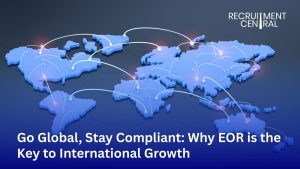Remote hiring has become a prominent aspect of the modern workforce, accelerated by global events. Adapting to this shift is crucial for organizations to continue attracting top talent. In this comprehensive guide, we will explore the challenges and strategies involved in remote recruitment, providing insights to help you optimize your approach.
The Remote Hiring Landscape
Embracing the New Norm
The traditional office-centric work model has evolved. Remote hiring is now a key component of talent acquisition strategies.
Advantages of Remote Hiring
Remote recruitment opens up access to a broader talent pool, reduces overhead costs, and offers flexibility to both employers and employees.
Challenges Faced
Remote hiring comes with its share of challenges, including assessing candidate suitability, maintaining company culture, and ensuring data security.
Strategies for Successful Remote Hiring
Refined Job Descriptions
Craft precise job descriptions that emphasize remote work requirements, including self-discipline and effective communication skills.
Leveraging Technology
Utilize remote interview tools, assessment platforms, and Applicant Tracking Systems (ATS) to streamline the hiring process.
Assessing Soft Skills
Remote work demands strong soft skills such as self-motivation, adaptability, and communication. Assess these qualities during interviews.
Cultural Fit
Assess if candidates align with your company’s culture and values, even in a remote work environment.
Security Measures
Implement robust security protocols to protect sensitive data during remote hiring processes.
Navigating the Interview Process
Structured Interviews
Conduct structured remote interviews with a clear agenda and evaluation criteria.
Video Interview Tips
Provide guidelines to candidates for effective video interviews, addressing technical aspects and professional conduct.
Testing and Assessments
Use online tests and assessments to evaluate candidates’ skills and competencies.
Onboarding in a Remote World
Virtual Onboarding
Create a comprehensive virtual onboarding process that familiarizes new hires with company policies, culture, and remote work tools.
Mentorship Programs
Assign mentors to help new employees integrate into the remote work environment effectively.
How Recruitment Central’s Talent Acquisition Platform Helps
Sourcing the right people is key to building strong teams. Our strength is helping to navigate this process. Since 2003, we have been partnering with clients in recruiting the very best candidates.
Conclusion
Adapting to remote hiring is a necessity in today’s dynamic work environment. By understanding the challenges and implementing effective strategies, organizations can navigate the remote hiring landscape successfully. It’s a transformative shift that, when approached thoughtfully, can lead to a more diverse, flexible, and productive workforce.
FAQs
Ques 1: What are the advantages of remote hiring?
Ans 1: Remote hiring offers access to a broader talent pool, cost savings, and increased flexibility for both employers and employees.
Ques 2: What challenges are associated with remote hiring?
Ans 2: Challenges include assessing candidate suitability, maintaining company culture, and ensuring data security.
Ques 3: How can companies ensure data security during remote hiring?
Ans 3: Implement robust security protocols and use secure online platforms for remote hiring processes.
Ques 4: What soft skills are crucial for remote employees?
Ans 4: Essential soft skills for remote workers include self-motivation, adaptability, and effective communication.
Ques 5: How can organizations assess cultural fit in remote candidates?
Ans 5: Assess cultural fit by evaluating candidates’ alignment with company values and culture during interviews.
Ques 6: What is the significance of structured remote interviews?
Ans 6: Structured interviews ensure consistency and fairness in candidate evaluations during the remote hiring process.







